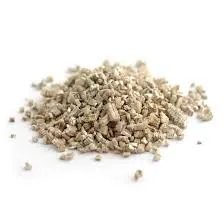Nov . 28, 2024 06:54 Back to list
Innovative Production Methods for Iron Powder Manufacturing in Modern Factories
The Role of Iron Powder Factories in Modern Industry
Iron powder has become an essential material in various industries, serving numerous applications ranging from metallurgy to electronics and pharmaceuticals. With the increasing demand for high-quality iron powder, factories specializing in iron powder production have gained significant importance in the manufacturing landscape. This article explores the functions, processes, and innovations in iron powder factories, highlighting their contribution to modern industry.
The Significance of Iron Powder
Iron powder is a versatile material used in making ferrous components through various manufacturing techniques such as powder metallurgy, injection molding, and additive manufacturing. One of its primary applications is in the production of sintered parts, which are utilized in automotive, aerospace, and machinery industries. Due to its fine particles, iron powder can create complex shapes with high precision and density, making it invaluable for modern manufacturing processes.
Furthermore, iron powder is used in magnetic materials, batteries, and as a reducing agent in chemical processes. The rising trend towards lightweight, energy-efficient components has fueled the demand for iron powder-based products, prompting factories to refine their processes and explore new markets.
Production Process
Iron powder is manufactured through various methods, each tailored to meet specific product requirements
. The most common techniques include chemical reduction, mechanical milling, and atomization.1. Chemical Reduction This method involves reducing iron ore or iron oxides using reducing agents such as hydrogen or carbon monoxide at elevated temperatures. The result is a high-purity iron powder, typically characterized by small particle sizes and a high surface area.
iron powder factories

2. Mechanical Milling Iron ingots are mechanically pulverized using mills, leading to the production of fine iron powder. This method is advantageous for achieving specific particle sizes and morphologies, catering to niche applications.
3. Atomization In this process, molten iron is sprayed through a nozzle into a gas or water stream, causing rapid cooling and solidification. This technique results in a uniform powder with excellent metallurgical properties, ideal for high-performance applications.
Iron powder factories meticulously control these processes to maintain quality and meet the stringent standards of their clients. Advanced techniques and equipment, such as laser diffraction for particle size analysis and automated quality control systems, are commonly employed to ensure consistency and reliability in the production of iron powder.
Innovations and Sustainability
As industries increasingly focus on sustainability, iron powder factories are adapting to greener manufacturing practices. Innovations such as recycling scrap metal into iron powder not only reduce waste but also lower production costs and resource consumption. Additionally, factories are exploring environmentally friendly packaging and transportation methods, contributing to a more sustainable supply chain.
Moreover, the integration of Industry 4.0 technologies in iron powder production has transformed how factories operate. The use of artificial intelligence and data analytics enables real-time monitoring of processes, predictive maintenance of machinery, and enhanced decision-making capabilities. These advancements result in increased efficiency and significantly reduce energy consumption, aligning with global sustainability goals.
Conclusion
Iron powder factories play a pivotal role in supporting diverse industries by providing high-quality raw materials essential for modern manufacturing. As the demand for iron powder continues to grow, these factories are evolving through innovative production techniques and sustainable practices. Their commitment to quality, efficiency, and environmental responsibility not only enhances production capabilities but also ensures that they remain integral players in the global industrial landscape. As technology progresses, the future of iron powder production looks promising, paving the way for more efficient, sustainable manufacturing solutions.
-
Eco-Friendly Granule Covering Agent | Dust & Caking Control
NewsAug.06,2025
-
Fe-C Composite Pellets for BOF: High-Efficiency & Cost-Saving
NewsAug.05,2025
-
Premium Tundish Covering Agents Exporters | High Purity
NewsAug.04,2025
-
Fe-C Composite Pellets for BOF | Efficient & Economical
NewsAug.03,2025
-
Top Tundish Covering Agent Exporters | Premium Quality Solutions
NewsAug.02,2025
-
First Bauxite Exporters | AI-Optimized Supply
NewsAug.01,2025
